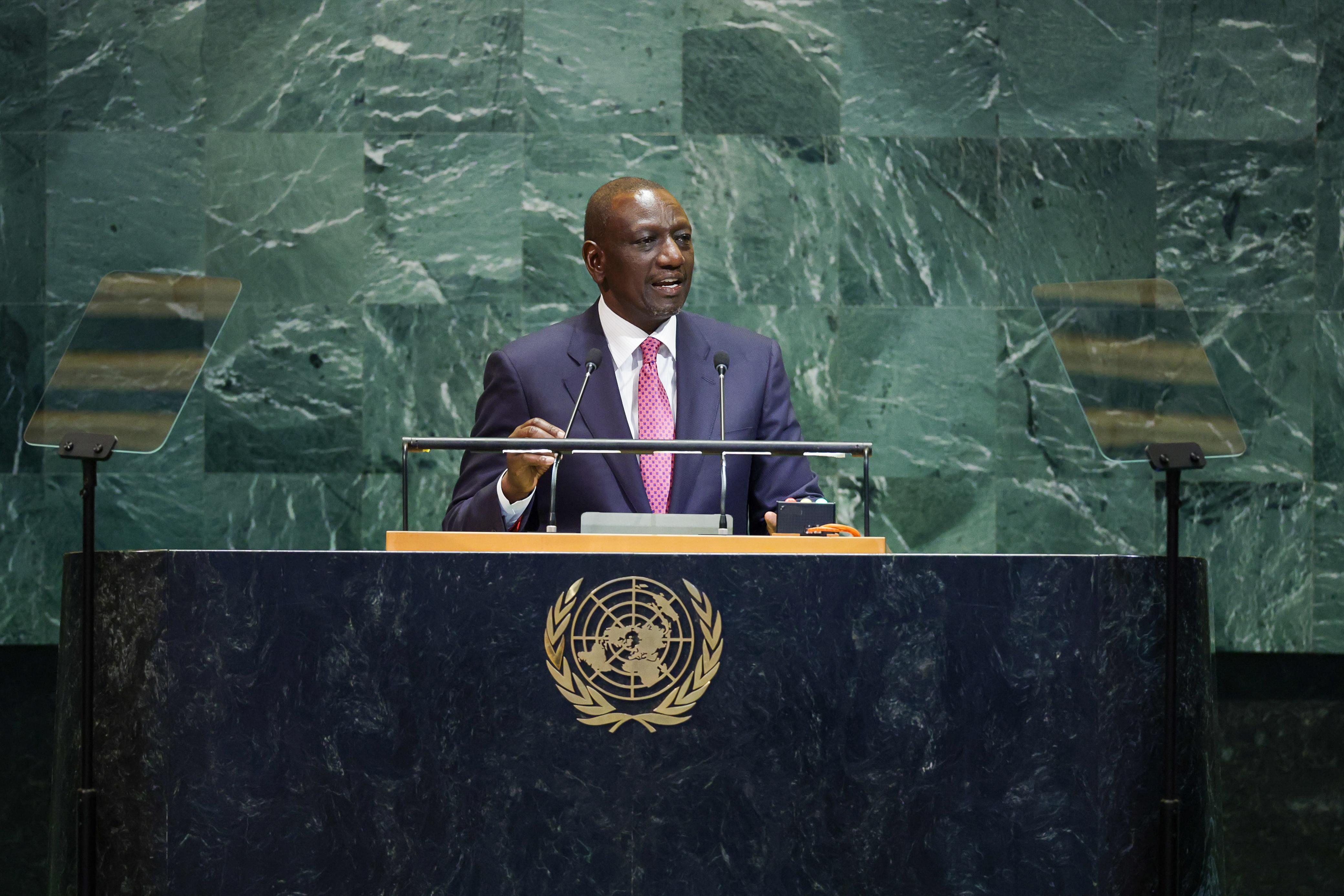

President William Ruto has warned that the United Nations risks sliding into
irrelevance unless it urgently undertakes reforms that reflect today’s
realities.
Delivering Kenya’s National Statement at the
United Nations General Assembly Debate in New York on Wednesday, President Ruto
said the UN must become fit-for-purpose by reforming its organs, strengthening
its mandate, and aligning its decisions with current global dynamics rather
than the 1945 geopolitical order.
“No matter how noble the UN’s origins or how
impactful its legacy, it must adapt to remain relevant,” he said. “Institutions
rarely fail because they lack vision or ideals; more often, they drift into
irrelevance when they do not adapt, when they hesitate to act, and when they
lose legitimacy.”
The President underscored Africa’s exclusion
from permanent representation on the Security Council as a glaring injustice.
“Africa’s exclusion is not only unacceptable,
unfair, and grossly unjust; it also undermines the very credibility of the
United Nations,” he stated, adding that reforming the Security Council is not a
favor to Africa but a necessity for the UN’s survival.
On global finance, President Ruto decried the
current system as punitive to poor countries while rewarding the wealthy.
He called for sweeping reforms, including affordable climate finance and the
unlocking of the $300 billion promised at the UN Climate Conference in Baku,
Azerbaijan.
“Without affordable finance and reform of the
international financial architecture, the promise of climate action in Africa
will remain constrained,” he warned.
Turning to conflicts, the President urged
consistency in addressing global crises, highlighting the wars in Gaza and
Sudan.
He called for a permanent ceasefire
in Gaza, the unconditional release of Israeli hostages, and a credible
political process toward a two-state solution.
“Only through such a process can the vision of
Israel and Palestine living side by side in peace and security be realised,” he
said.
On climate change, President Ruto stressed
that Africa is not a passive victim but is actively leading solutions.
“Climate change is the greatest threat of our
age, but also one of the greatest opportunities. Kenya and Africa are taking
bold steps, showing that climate action can be the foundation for inclusive
growth,” he said.
He also pointed to progress in Haiti, where
Kenya leads the multinational security mission.
He reported that schools had reopened, roads were free from gang blockades,
kidnappings had reduced, and critical infrastructure like the airport and
seaport had resumed normal operations.
However, he cautioned that the mission
remained underfunded:
“I urge the Security Council and all partners to remain steadfast in
ensuring that Haiti moves forward on a path of peace, stability, and renewal.”















